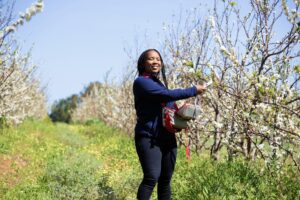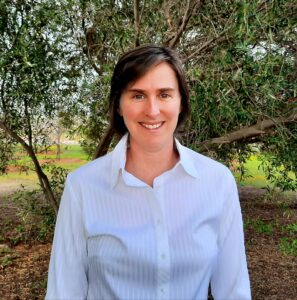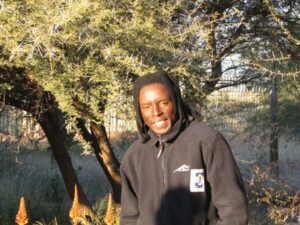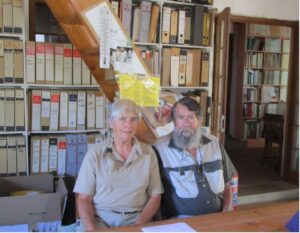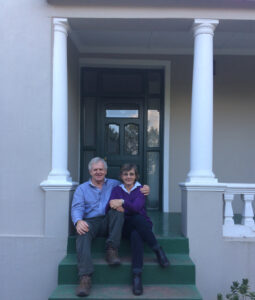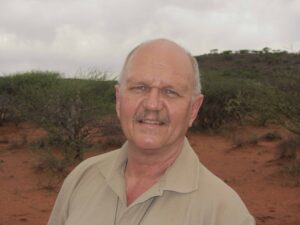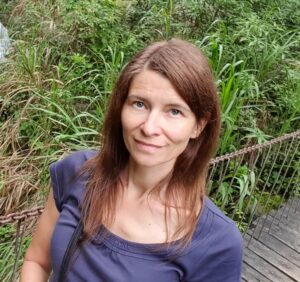Our People
Zanele Ntshidi - Node Manager
Zanele Ntshidi is a certified Eco-hydrologist passionate about environmental conservation, water conservation and a holistic approach to the conservation of all natural resources. She advocates for sustainable development in a world where natural resources are at the periphery of extinction. Her research interests are in ecology, water security and environmental management.
She has a specific interest in plant water use monitoring, using state-of-the-art equipment, she has also created plant water use models, which were validated using ground observations. Data she gathered on invasive alien plants water use has been used to prioritize management interventions. She has monitored groundwater and commends groundwater governance to ensure sustainability of this resource. Her PhD research focused on agricultural water management, developing technologies that promote smart water use in the agricultural sector, advocating for water use efficiency without compromising sustainable crop production.
Zanele is a public servant leader sworn by the National School of Government, she believes that being in a position of leadership is an act of service, putting the needs of others before her own. She believes in social justice and letting her team be themselves as they find their full potential, while also encouraging them to grow and be the best versions of themselves.
Helga van der Merwe - Node Scientist
Arid Systems Ecologist, Honorary Research Associate at The Department of Biological Sciences, University of Cape Town
In April 2014, I was granted a Research Career Award Fellowship by The NRF and was appointed as scientist in SAEON’s Arid Lands Node. My project was titled ‘Assessing the impact of climate change, land use and management on vegetation in the arid areas using pre-existing data and expanding monitoring’. Upon the successful completion of my fellowship, I was appointed as Arid Systems Ecologist at the Node.
My work over the past two decades has been concentrated in the arid and semi-arid lands of South Africa. Studies have included the compilation of vegetation maps, veld condition assessments, monitoring of vegetation change over time since the abandonment of ploughing or as a result of different grazing pressures, long-term vegetation change following change of land use, changes over time in vegetation following fire, biodiversity assessments and their comparison with other areas in South Africa and across the world.
Tshililo Ramaswiela - Field Technician
Tshililo was appointed as Research Technician at the Node in February 2011.
His core activities involve performing in situ observations at the nodes research sites, and performing data collection, quality assurance, archiving and provision to users. Furthermore he’s responsible for Health and Safety issues within the node and also provides general support services to researchers and students. His undergraduate studies at the University of Venda included savannah ecology where he was involved with the assessment of elephant damage on Marula trees in the Kruger National Park. Tshililo’s postgraduate studies was mostly in invasion biology through the University of Stellenbosch, for which he spent a year on the sub-Antarctic Island, Marion, mapping the geographical distribution of alien vegetation and determined their current status on the island. The research also extended to priorities for the control of alien plants, based on feasibility estimates.
SAEON ALN provides a great platform for Tshililo to explore some of the oldest long-term research projects in the vast Karoo region and he is making the most of this opportunity.
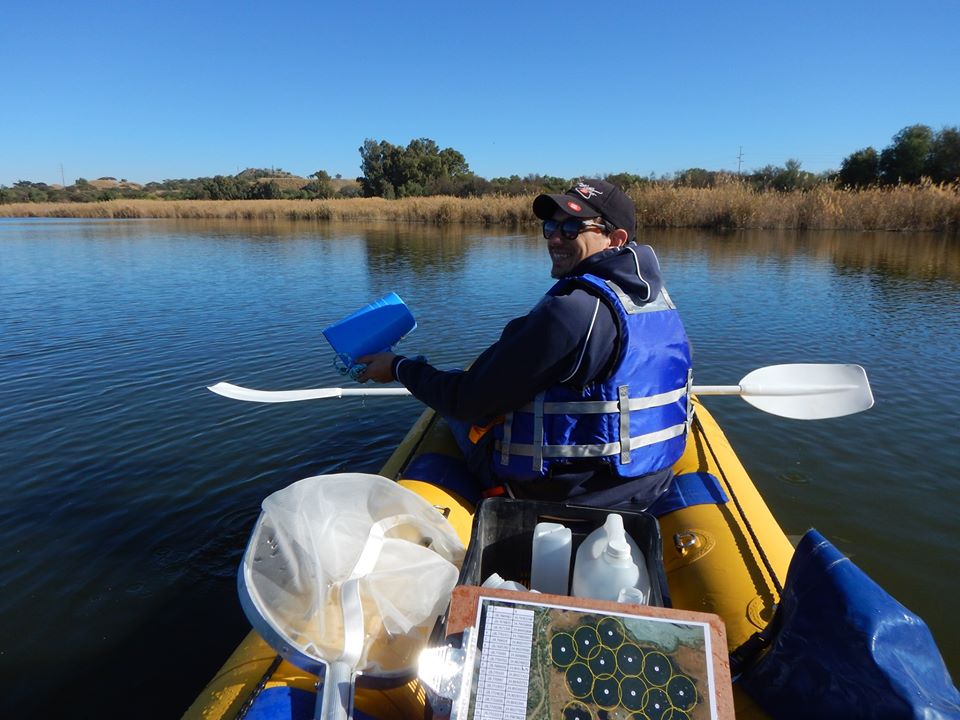
Wynand Calitz - Field Technician
From a young age I was exposed to the outdoors and my enthusiasm for the environment and its conservation grew.
My studies focused on the environmental sciences and with my Masters I was truly exposed to ecology and my passion for the topic increased exponentially. I see ecological studies as the ‘CSIs’ of the natural world, identifying the various components and trying to figure out how it all fits together.
I have been fortunate enough to have been exposed to many different fields of Botany from nutrient analyses in the lab; to wading through the mud looking at mangrove populations; to mapping species of conservation concern; and, as with my MSc, burning plants to investigate their flammability.
As of the start of 2020, I joined the SAEON Arid Lands Node team as a field technician where I continue to pursue my passion for understanding the ecology of our beautiful country and assist other researchers with their novel and interesting studies.
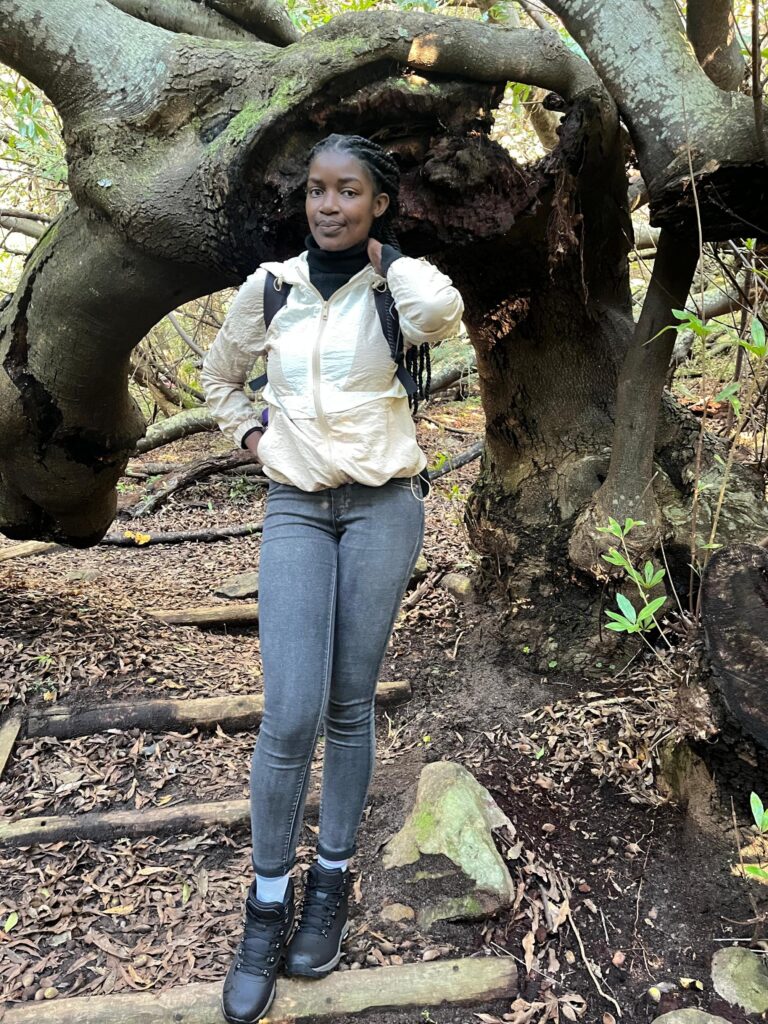
Phumudzo Ragimana - Science Education Officer
Phumudzo is an Environmental Scientist passionate about environmental conservation and education. My masters focused on assessing the differentiated use and value of river and riparian ecosystem services, as well as local perspectives on safeguarding these services in the future. I have also been involved in research on human perceptions towards large wood in river ecosystems following flooding experiences for my honours, which was published in the River Research and Applications journal in 2022.
As I was growing I did notice that there were some changes taking place in our environment which got me curious and interested in knowing what could those changes be, their causes, and what could be done to mitigate such. After my studies, I went into environmental education where I became more passionate about educating people about environmental conservation and the role they can play in being part of the environmental solutions. In the Arid land node, I will be seeking to establish the node’s learner and community science engagement programs to ensure our impact and contribution to improved science literacy within society.

Joanne Riet - Office Administrator
Responsible for admin and procurement of goods and services needed by the node/staff. I started working at SAEON in January 2020, and have enjoyed every moment so far. There is so much to learn and every challenge faced thus far has been progressive to myself and I believe that it lets you grow as an individual and also better your work ethic.
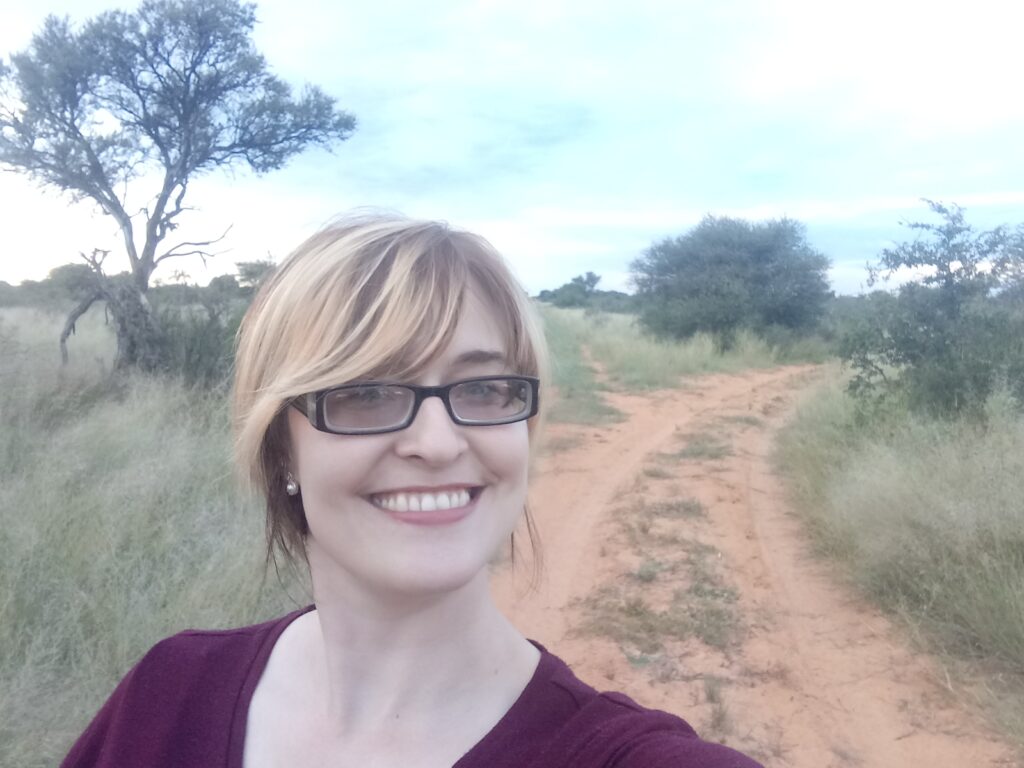
Nanette van Staden - post-doctoral fellow
Nanette was awarded the Professional Development Programme (PDP) Postdoctoral fellowship in 2024. She officially joined our team on the 1st of August 2024. Nanette is mentored by Dr. Helga van der Merwe in collaboration with Prof. Stefan Siebert at the North-West University.
Nanette conducted her PhD research in the Griqualand West Centre of Endemism and is going to continue to pursue this research during her post-doc journey. Her current project will aim to establish long-term monitoring sites to detect impacts of global change on the ecology and socio-economics of the semi-arid rangelands of the mountain landscapes in Griqualand West.
Nanette is passionate about plant ecology, conservation and research, especially in semi-arid and arid landscapes.

Joseph Morena Ralile - BSc Hons student
My name is Joseph Morena Raliile, and I am a dedicated BScHons student in Biological Sciences (Botany), having completed my BSc in Biological Sciences in 2024 at Sol Plaatje University. My academic journey has been driven by a deep curiosity about the natural world, with a particular interest in plant physiology, ecology, and environmental sustainability. Growing up in a small mining town, I learned the value of hard work and perseverance—qualities that continue to shape my academic and personal growth. I am passionate about conducting research that has real-world impact, especially in areas like agriculture and biodiversity conservation, and I’m excited to contribute meaningfully to the field.
Richard Dean and Sue Milton-Dean - Research Associates
Dr W. Richard J. Dean and Dr Sue Milton-Dean joined the Arid Lands Node team in 2013 when SAEON became the owner of the Tierberg Long Term Ecological Research Site (LTER) near Prince Albert.
Dr Richard Dean is an ornithologist with a PhD in Zoology from the Percy FitzPatrick Institute of Ornithology at the University of Cape Town. After many years of researching birds in woodland and savanna areas including Angola, Zimbabwe, Limpopo and Mpumalanga, he moved to Prince Albert in the Karoo in 1987 with his wife Dr Sue Milton-Dean in order to establish the Tierberg LTER on behalf of the National Research Foundation. Richard’s research has focussed on the ecology and distribution of birds including nomadism, food selection, nest building and their interactions with plant and animal communities. He has authored or co-authored 250 peer-reviewed papers, four books and contributed to various editions of Roberts’ Birds of Southern Africa.
Dr Suzanne J Milton-Dean has a PhD in Ecology from the University of Cape Town. She has an interest in process of plant invasions, the effects of harvesting and grazing on plant populations and communities and in ecological restoration. She has authored or co-authored 188 peer reviewed papers and together with Richard Dean she has authored a book on veld management and edited the “The Karoo-Patterns and Processes” as well as a book on ecological restoration. From 1999 to 2005 she was Professor of conservation Ecology at Stellenbosch University. In 2008 Richard and Sue Dean started a plant nursery and restoration business “Renu-Karoo Veld Restoration” and established Wolwekraal Nature Reserve in Prince Albert. However, they maintained their links with research, students and academia via University of Cape Town, Mandela University and SAEON.
Gretel and Noel van Rooyen - Research Associates
Arid Lands Node team is strengthened two arid region specialists, Dr. Noel and Prof. Gretel van Rooyen. Both these scientists bring with them unique skills and experience.
Dr Noel van Rooyen highest academic qualification is a DSc in Plant Ecology at the University of Pretoria where he was later appointed as Professor in Plant Ecology until 1999. He is an author/co-author of 121 peer reviewed research publications, chapters in five books as well as a co-editor of sixth book. In 2001 he published a field guide on the flowering plants of the Kalahari dunes. Noel has extensive experience in the arid regions of Limpopo, North-West Province and Mpumalanga, but a special affinity to the Kalahari in which he has conducted a vast amount of research since the 1980s. His specific expertise include vegetation surveys, classification and mapping, wildlife management, wildlife production and economic assessments, vegetation ecology, veld condition assessment, carrying capacity, floristic diversity assessments, rare species assessments, carbon pool assessments and alien plant management.
Prof Gretel van Rooyen has a PhD in Plant Ecology at the University of Pretoria and is a Honorary Professor in Plant Ecology at the University of Pretoria. She is author/co-author of more than 100 peer reviewed research publications and has presented/co-presented more than 100 posters or papers at international and national conferences. Five PhD and 29 Masters students have completed their studies under her supervision/co-supervision. Gretel has co-authored a book and two wildflower guides while she has also contributed to six chapters in various books. Her primary research interests lie in population biology and vegetation dynamics with her main research aim being to gain an understanding of ecosystem dynamics and to use this understanding to develop strategies to conserve, manage, use sustainably or restore ecosystems. Geographically the focus of the studies has been primarily in Namaqualand and the Kalahari although several studies were conducted in Maputaland (Northern KwaZulu-Natal) and Namibia.
Joh Henschel - Research Associate
Joh Henschel is an ecologist, with an early background in marine biology, followed by terrestrial ecology, particularly in arid lands. His specific fields of research include biodiversity, community ecology, landscape ecology, and restoration ecology. Joh studied zoology and oceanography up to MSc level at the University in Cape Town, and obtained his PhD degree through the Mammal Research Institute at the University of Pretoria. He spent 35 years in Namibia, employed as post-doc, scientist, the director of an environmental institution and environmental consultant. While at SAEON Joh broadened ALN projects to also include population dynamics and the ecological significance of indicator animals, including arthropods and mammalian herbivores. Furthermore, his many years of experience in environmental monitoring and advising environmental procedures by mining and film industries facilitated his development of related projects across the arid half of South Africa, including planning environmental baselines and monitoring relating to shale gas mining and the development of an opportunity for an Environmental Research Platform at SKA. He has published 144 scientific papers, 17 book chapters and several hundred popular articles on environmental topics, including three popular books published in Namibia. Joh retired from SAEON in October 2020 and has accepted a Research Associateship with SAEON as he wishes to continue with his research in arid systems and to collaborate with ALN into the future.
Betsie Milne - Research Associate
I was born to be an ecologist!
My passion for biodiversity conservation has led me to obtain a PhD in Botany from the Nelson Mandela University, a Masters in Environmental Management from the University of the Free State and a BTech in Nature Conservation from the Tshwane University of Technology.
My involvement in the mining industry of the Northern Cape since 2007 has heightened my awareness of the understudied ephemeral pans in the province and I was delighted to join SAEON ALN as a postdoc in 2016 to lead ground-breaking research on these vastly neglected systems.
I performed an extensive survey across the Northern Cape, sampling 113 ephemeral wetlands, which led to a large amount of novel information on the distribution of large branchiopods to be uncovered. Most significantly, at least five new large branchiopod species were discovered.
This project also highlighted the Northern Cape as a global large branchiopod biodiversity hotspot. I now continue this research under the SAEON banner, as a research associate. For more information, please contact me at betsiemilne@gmail.com.

